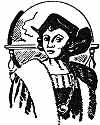|
A Radio Talk by Charles F. Kettering  As
we listen to fine music, you probably wonder, just the same as many
others, what kind of person the composer was and how he arrived at the
combination of notes and intervals that resulted in this particular
composition. We are sure that back of it there are long hours of cut
and try, discouragement and hard work. We hear only the successes. As
we listen to fine music, you probably wonder, just the same as many
others, what kind of person the composer was and how he arrived at the
combination of notes and intervals that resulted in this particular
composition. We are sure that back of it there are long hours of cut
and try, discouragement and hard work. We hear only the successes.I wish we could see the great amount of patient work that is required and the great amount of discarded material which is necessary to produce one of these successes.  Composition, development and invention are not new things. The
procedure used is as old as mankind itself. However, there is a certain
amount of dramatic appeal to discovery inasmuch as it always includes
the element of surprise. It is often the result of starting out to do
one thing and ending up with something different. Columbus, of course,
is the classical example of this. He started out to find a new route to
India, and discovered America.
Composition, development and invention are not new things. The
procedure used is as old as mankind itself. However, there is a certain
amount of dramatic appeal to discovery inasmuch as it always includes
the element of surprise. It is often the result of starting out to do
one thing and ending up with something different. Columbus, of course,
is the classical example of this. He started out to find a new route to
India, and discovered America.Many years ago, I read a story which had a great effect on me and whenever I think of men groping blindly to find things, it always comes to my mind. The story is about a man by the name of Bernard Palissey who lived in the southwest of France about four hundred years ago. He was jack-of-all-trades - surveyor, painter, a worker in glass and, in addition, he was a nature lover. |








